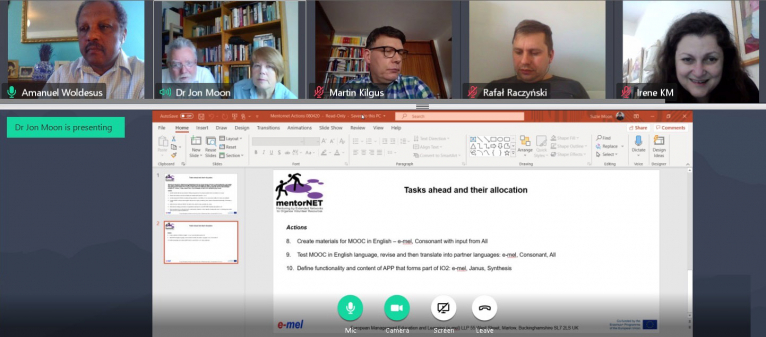
On 6th April, the project team were scheduled to meet in Nicosia, Cyprus for their second transnational meeting. The interruption of the Covid-19 crisis meant that this meeting could not proceed; therefore, we had to be creative to overcome this issue.
Like many others, we decided to go "online" to meet. To create an effective meeting takes a lot of planning: The first thing to look at was time. The face to face meeting was scheduled for 2 full days, but of course, that included coffeee breaks, lunch and dinner too. More difficult online. We decided to spread the meeting over 4 half-days to try and maintain a high level of engagement and include breaks (eg coffee and allowing people to go offline to reflect on presentations to formulate their opinions).
Of course, technology is always the weak point of any virtual meeting, but by using a combination of Goto Meeting, WhatsApp and e-mail, we were able to mostly compensate for any technical "glitches". The meeting was very productive, although not as enjoyable as meeting in person, but we did meet more family members than we would have and were able to enjoy a good chat over a virtual drink and dinner.
Although the meeting worked well, it is a very different environment to meeting in person - online, it requires more discipline (to ensure people do not all speak at the same time) a well thought through agenda (it took twice as long to put one together as normal) and a considered approach concerning how all participants would get an opportunity to participate and contribute.
The MentorNET team are used to remote meetings (we hold monthly project meetings via WhatsAPP) but this was a new level of involvement. We hope to physically meet at our next meeting in Stuttgart!
During the meeting we discussed the findings of our research into the skills needed to mentor successfully and also what needs to be included in the mentoring MOOC. We also discussed our research into best practice regarding the development of self-sustaining networks. The research was a combination of desk research and an online survey. We had planned to hold focus groups as well, but this was not possible due to Covid-19 restrictions.
The next stage of the project involves writing up the results of our research into a paper and simultaneously developing the content for the MOOC and recruiting organisations interested in creating a network of mentors.
